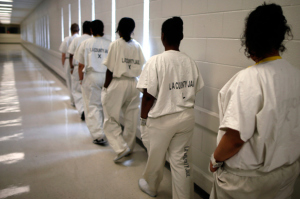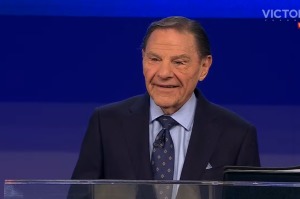Separation of Church and IRS
In the aftermath of evidence that the IRS has been targeting conservative non-profit groups for hostile and intrusive scrutiny, congressional hearings have focused on possible "political bias" inside that tax agency, to borrow a phrase from Senator Orrin Hatch (R-UT) in Tuesday's hearing. While that is a valid question, there is an even larger threat at play here – one that strikes at the heart of religious freedom: IRS harassment of Christian ministries.The problem stretches back to an IRS letter in 2007 and its aftermath.
Amidst the flurry of recent reports that a large number of Tea Party non-profits had been mercilessly grilled by IRS agents as part of a mine sweep for conservative organizations, news has also surfaced that National Religious Broadcaster member groups had also been caught up in this dragnet.
Franklin Graham, head of the Billy Graham Evangelistic Association and Samaritan's Purse, says that his groups were also investigated during that same time period, and he has suggested this may be, in his words, a government attempt at "intimidating us." Likewise, Dr. James Dobson's Family Talk Action non-profit group, when it applied for tax-exempt status, was advised by the IRS that it might not qualify, because it was a "partisan right wing group" that had "criticized President Obama."
But this is not a new issue. On June 28, 2007, the Acting Commissioner of the IRS wrote to Senator Charles Grassley, who serves on the Finance Committee, suggesting that alleged "abuses" by some non-profits might require them all to subscribe to an IRS-minted set of "governance principles as a condition of obtaining or retaining tax-exempt status."
While the letter did not specifically mention faith-based organizations, there is strong evidence that the IRS had them in mind as comprising at least part of the targeted groups. Four months later, Senator Grassley delivered letters to a handful of large Christian television ministries, demanding that they provide a host of documents detailing their activities, including all of their board minutes over a three-year period, and a complete listing of the names and addresses of their board members. While none of those TV ministries were members of NRB, and therefore we cannot and have not vouched for their activities, the focus of NRB's concern has been on the intrusive and highly questionable breadth and scope of that investigation. Then, in the following month, the IRS issued new 990 forms, the documents that must be annually filed by non-profit groups, including religious ones. Our review showed that those new forms contained probing questions, some of which intruded on the First Amendment protections of religious organizations.
In a review of the current scandal, the Treasury Inspector General for Tax Administration has concluded that "inappropriate criteria" were used by the IRS to screen and scrutinize conservative groups, including the deliberate targeting of organizations that were involved in "educating on the Constitution and the Bill of Rights." So far, however, politicians and agency personnel have not addressed the growing evidence of government hostility toward faith-based conservative ministries.
In the blogosphere, defenders of the IRS have suggested that the distinction between "religious" activities and "political" ones is a thin line, and the IRS is justified in erring on the side of diligence as they hunt for abuses. But that is a false argument: 501(c)(3) groups are not prohibited from taking action that influences legislation as long as it constitutes an insubstantial part of their overall activities. And the rules are even more generous for 501(c)(4) organizations. Beyond that, Christian ministries should not be subjected to an inquisition of harassment or intimidation just because the possibility exists that a tiny number of tax-exempt organizations may occasionally cross the line.
If the religion clauses of the First Amendment mean anything, they surely must mean that. I look forward to lawmakers on Capitol Hill considering that part of the IRS drama as they schedule their next round of hearings.





























